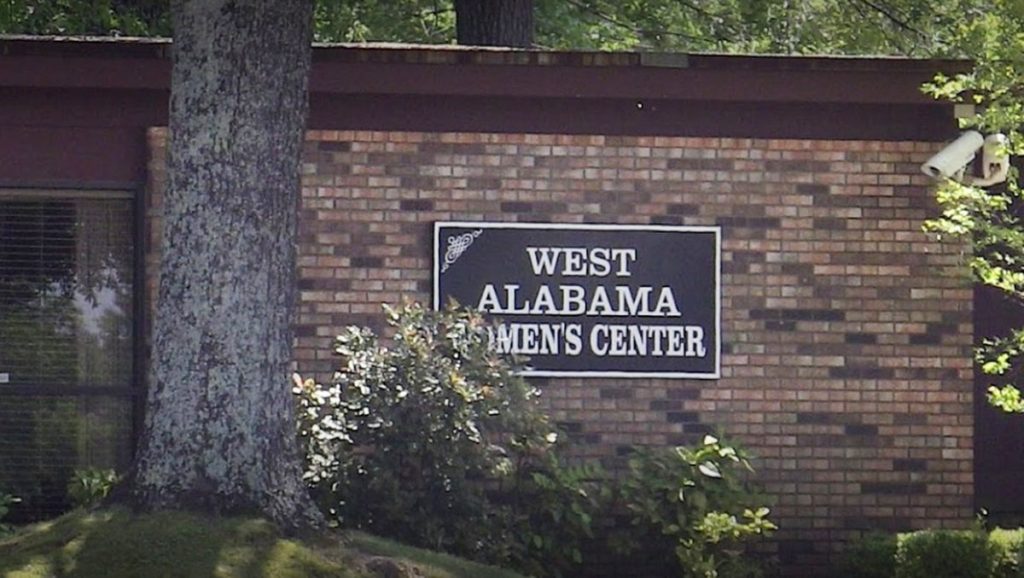By Amy Yurkanin
Pro-abortion advocates in Alabama are shifting strategies to help women travel for care and protect them from prosecution in the aftermath of today’s U.S. Supreme Court ruling that struck down the right to abortion.
The state’s largest abortion clinic in Tuscaloosa stopped performing abortions when the U.S. Supreme Court ruled Friday that states can create laws regulating or banning the procedure, overturning nearly 50 years of precedent. The case, Dobbs vs. Jackson Women’s Health Organization, concerned a law in Mississippi that bans abortion after 15 weeks, more than a month before a fetus becomes viable.
“Even if they are on the patient bed, any charts they come and seize afterward, they can check and see if we did an illegal abortion,” Marty said.
Alabama’s Human Life Protection Act, which passed in 2019, will not take effect immediately, according to Alabama Attorney General Steve Marshall. State officials need to petition U.S. District Judge Myron Thompson to lift his injunction, which could take time. That law makes it a felony to perform or assist in an abortion but does not include criminal penalties for women receiving the procedure.
Mike Lewis, a spokesperson for the Alabama Attorney General’s Office, said officials plan to ask for all injunctions to be lifted on abortion laws. He said the state would begin enforcing those laws quickly.
“We intend to enforce Alabama’s abortion laws in short order,” Lewis said in an email.
When Roe fell, Marty said abortion providers were advised to follow the law in place before the pivotal case, which says anyone who administers a drug or substance or performs a procedure to kill a fetus is subject to a fine and up to six months in jail. It does not exclude pregnant women from prosecution.
The Human Life Protection Act says abortion providers could be subject to 10 to 99 years in prison. It also says that no woman who has an abortion performed upon her will be criminally liable.
However, abortion advocates remain concerned about the legal risks for women who may try to obtain abortions illegally in Alabama. Some services based overseas will provide medication that can induce an abortion in states where those pills are illegal.
“This is a devastating ruling that will have life-threatening impacts,” said JaTuane Bosby, executive director of the ACLU of Alabama. “Although their attacks have intensified over the last decade, Alabama lawmakers have been committed to stripping away healthcare for women and all pregnant people long before Roe was decided. There is no doubt that this ruling will encourage them to insert themselves between doctors and their patients further.”
Laurie Betram Roberts, executive director of the Yellowhammer Abortion Fund, said her organization wants local prosecutors to promise not to pursue criminal charges against woman in those cases.
“Part of the work that we’re doing is going to be supporting people who choose to self-manage their abortion and fighting back against the criminalization of that,” Roberts said.
The concern about criminalization stems from Alabama’s history of prosecuting women for drug use during pregnancy. At least 20 women in the state have been arrested after stillbirth or the death of a newborn after they used drugs, according to research by Al.com.
In 2020, a jury in Lee County sentenced a woman to 18 years in prison after she admitted to using methamphetamine before prematurely delivering a baby who died. Hundreds of others have been prosecuted in cases where babies were exposed to drugs during pregnancy but not harmed. Activists worry prosecutors could use similar legal reasoning against women who use abortion pills.
“One of the things I’ve been encouraging people to do is go talk to your [district attorney] and ask them to commit to not prosecuting anyone for their pregnancy outcome,” Roberts said. “To not prosecute people for self-managing their abortion. I don’t feel like that’s a small ask.”
Marty said Alabama women and doctors already fear punishment for abortion care. She said patients seeking treatment in emergency rooms for bleeding from medication abortions have been turned away. She said her clinic will remain open in part to provide a place where women can get medical treatment for bleeding during pregnancy or self-induced abortion without fear of arrest.
“We want people who are both managing their own abortions, but also people who are pregnant with wanted pregnancies but are concerned about their pregnancies to know they can come in and get ultrasounds, be able to check on bleeding, be able to have follow up if they did their own abortions and not worry about going to a hospital where they could be put in danger or legal jeopardy,” Marty said.
The West Alabama Women’s Center will continue to provide birth control and other sexual health services, Marty said. Clinic providers hope to provide services to women on Medicaid.
Lauren Frazier, spokesperson for Planned Parenthood Southeast, said the organizations clinics in Alabama stopped performing abortions before the Dobbs decision came down. They are devoting more resources to patient navigation to help arrange travel for people who need to go out of state.
The Yellowhammer Fund, which provides financial assistance to women who want abortions, said it will have to increase fundraising to cover the high costs of seeking care in other states such as Illinois. The organization also hopes to open a pregnancy and parenting resource center for people who can’t travel out of state and must carry unplanned pregnancies to term, Roberts said.
Marty said she’s unsure who might push for changes in the state’s abortion laws. Much of that advocacy fell to national organizations that have now shifted focus to states that will continue to allow abortions.
“I think that people feel beat,” Marty said. “A lot of the resources that would go into these kinds of protests would come from national organizations. And I think they’ve already written off the South.”
Frazier said Planned Parenthood will continue to provide resources for voters concerned about abortion access. Although 61 percent of Americans said abortion should be legal in all or most cases, according to the Pew Research Center, most Alabamians identify as anti-abortion. In 2018, 59 percent of voters voted in favor an amendment recognizing the rights of the unborn.
Voters must elect leaders who support access to abortion to change state laws, Frazier said.
“Folks need to know that they have to show up and make their voices heard,” she said.
The realities of an abortion ban could shift public opinion in Alabama, Roberts said.
“Pendulums swing and I absolutely feel this is the right overplaying their hand,” Roberts said. “We know through polling that no one wants this. We’ll just see how long it takes for things to change.”











